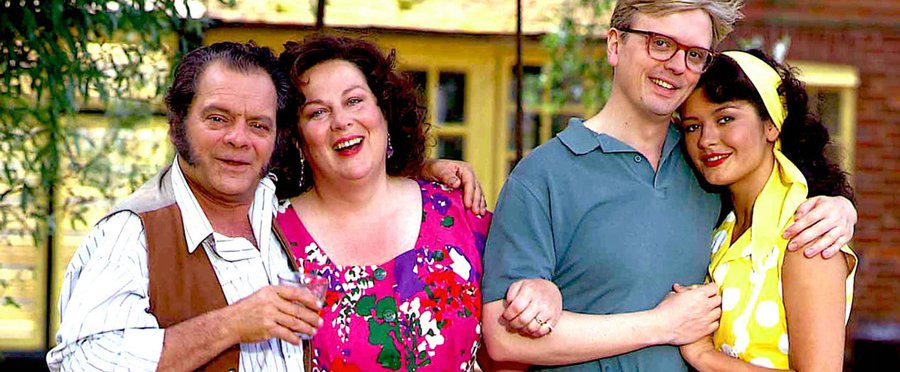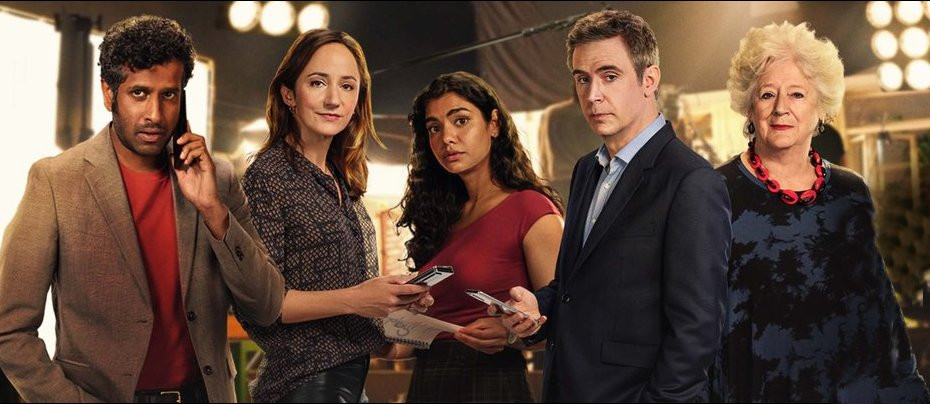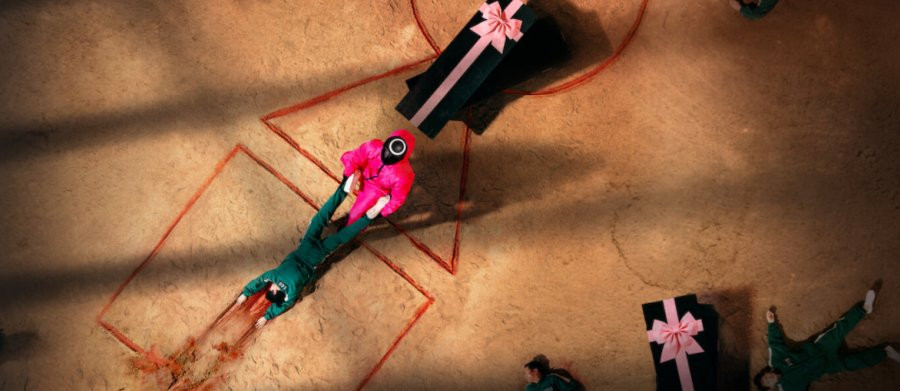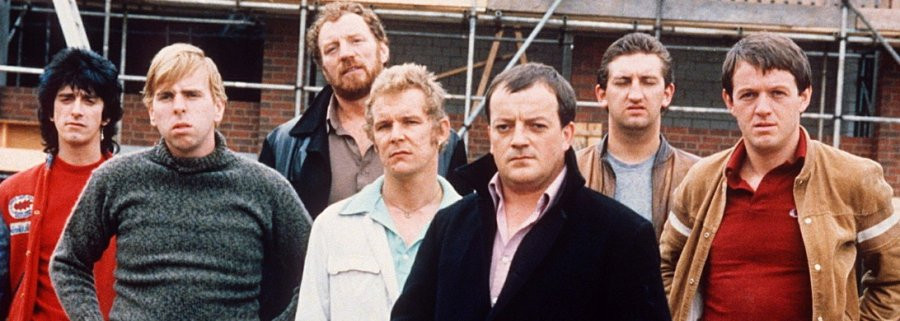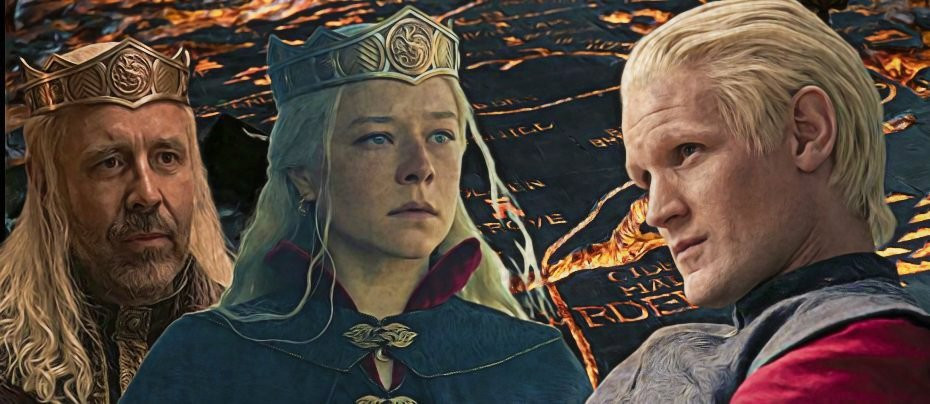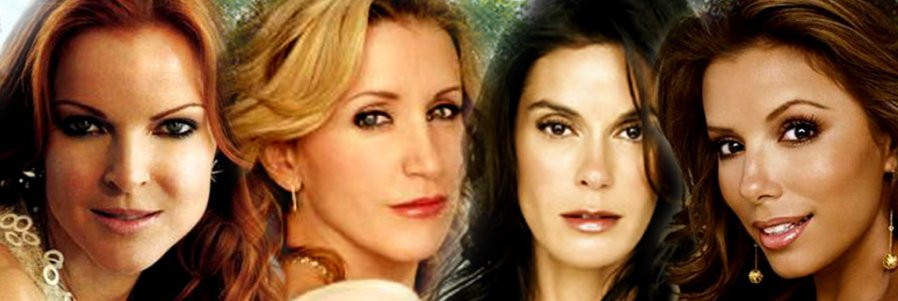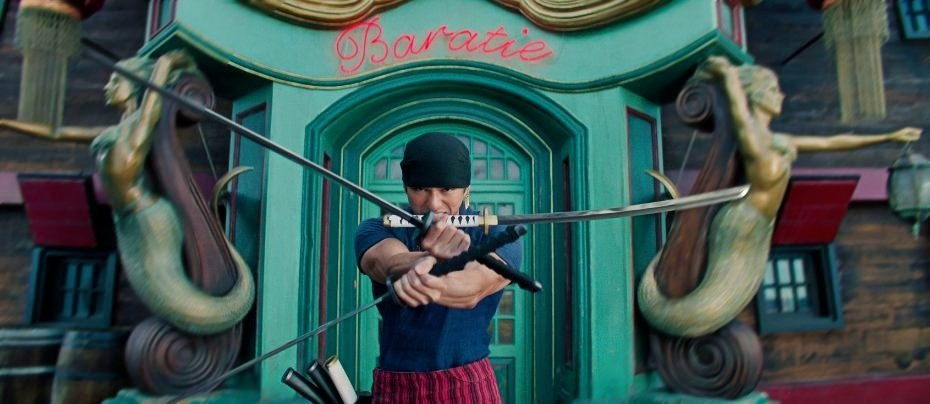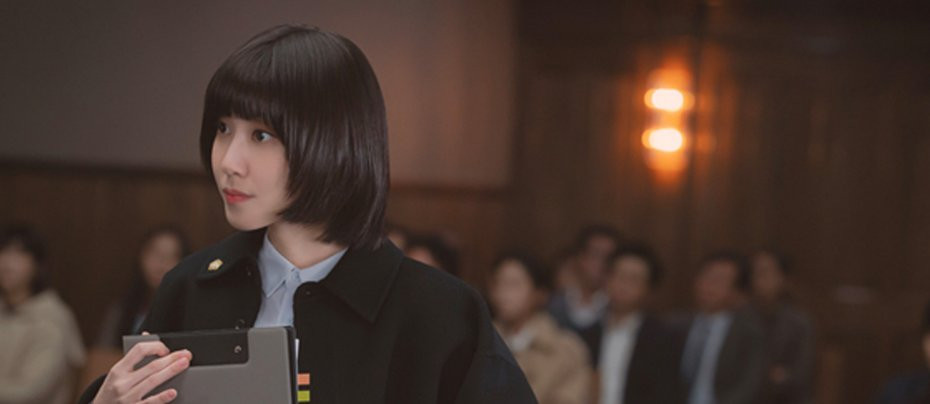
Extraordinary Attorney Woo
2022 - South Koreathe show grew in popularity to achieve some of the highest ratings in the history of Korean satellite and cable history
review by John Winterson Richards
It is extremely unlikely that a comedy drama like Extraordinary Attorney Woo, about a Korean lawyer on the autism spectrum, could be made in the West these days. It would be perceived as offending all sorts of sensibilities. Happily, the Koreans are not so oversensitive.
The irony of this is that the show is actually very informative about autism and helps to dispel a number of misconceptions that have built up, not least as a result of previous portrayals of autism in the Western media. It was the 1988 film Rain Man, with Dustin Hoffman and Tom Cruise, that really established the condition in public consciousness, but it also gave completely the wrong impression. The "autistic savant" is by no means typical of people on the autism spectrum.
The point is well made very early on in Extraordinary Attorney Woo that, as the name suggests, the spectrum covers a very wide range of different presentations. In some cases, autism may be barely noticeable or may remain undiagnosed. Alternatively, it could be associated with other, perhaps more serious issues. Our eponymous heroine is both particularly high functioning and particularly intelligent, and therefore, as the title suggests, extraordinary.
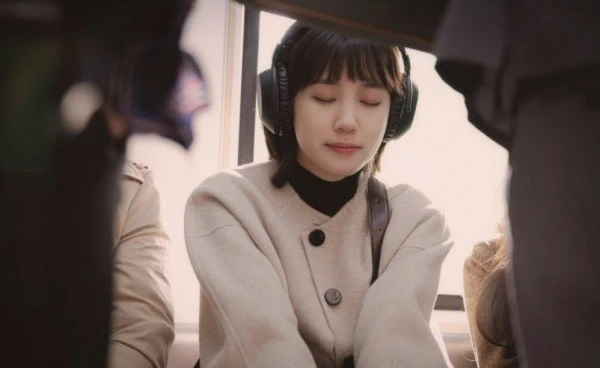
Having established that, the script is clever in holding back explanations of some of her habits until we have had a chance to get used to them. For example, she seems to have difficulty with the simple task of going through doors and appears to perform a little ritual every time. This is because, although autistic people can be very good at processing information in their own time and in their own way, they may be thrown when a lot of new data is suddenly dumped on them. Merely entering an unfamiliar room can overload their ability to absorb what their senses are giving them. They prefer order and structure, so they often take refuge in a well constructed inner world - for Woo Young-woo, this includes her obsession with whales - and they are uncomfortable when the apparently chaotic and confusing external world intrudes on this. Their coping strategy is often to try to impose some order, for example through personal ritual, on the external world. When all this is explained and understood one can see that there is a definite logic to the autistic world view. It really is just different from the norm.
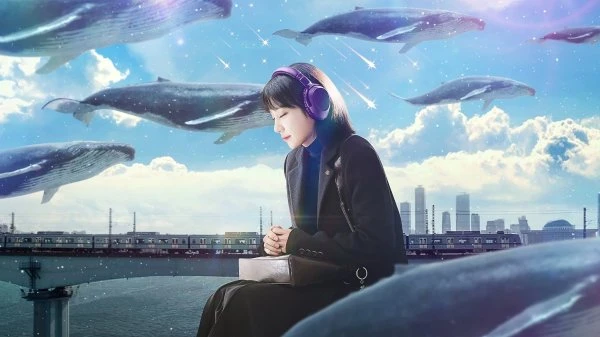
Neurophysiology tells us that people on the autism spectrum tend to have fewer connections between the various sections of the brain but, as if to make up for that, more connections within those sections. That makes them natural born specialists if they are high functioning.
The show describes Woo Young-woo as Korea's first autistic attorney. One would be surprised if she was - not surprised that she was an attorney but surprised that she was the first. There are many successful people in the legal profession elsewhere who are somewhere on the spectrum - and, one suspects, from personal experience, a great many more who are undiagnosed. A passion for structure and order is an asset in many occupations, and autistic people can excel at processing data when they are not put under pressure. This can be very adept in, for example, preparing and checking legal documents.
Whether someone far along the spectrum could function specifically as a trial attorney or barrister - which, for some reason never explained, is the singularly unsuitable specialisation to which Woo is assigned by her firm - is another matter. Therein lies the drama, of course. Contrary to what the word suggests, law is rarely as fixed or constant in the modern world as it appears to Woo. Trial lawyers manipulate it to suit their ends and have to think quickly on their feet. The need to depart from established structures would be a particular challenge to someone on the autism spectrum. One cannot help thinking the firm would have done better assigning Woo to the Contracts Department or something like that, but, of course, endless reading lacks the dramatic impact of court scenes.
Although she is not herself autistic - which would itself probably trigger complaints if the show was somehow produced in the West - Park Eun-bin gives a wholly credible performance as Woo. Perhaps it helped that she is a psychology graduate and researched the condition thoroughly. More importantly, she is a great actress and gives Woo a delightful, childlike charm. Our protagonist's sheer likeability is the main attraction of Extraordinary Attorney Woo.
This is a very brief overview of its first season. Structurally it has much in common with relatively light-hearted American legal dramas such as LA Law and Boston Legal, except, as the name suggests, the focus is more on a single protagonist than on the ensemble cast. The supporting characters are solid, and sometimes they are given a chance to shine without Woo's dominant presence, but this is very much her show.
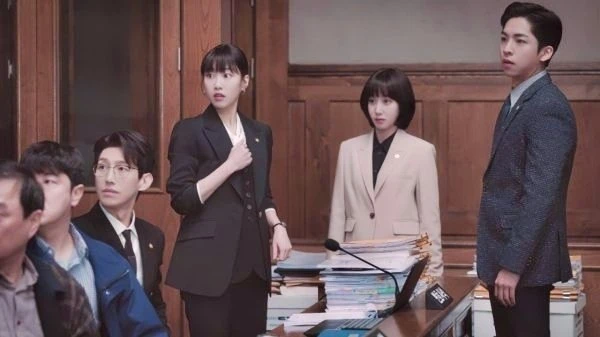
Most episodes are freestanding, each dedicated to a single case, but there are a few two-parters, and several story arcs run through the season in addition to individual character arcs. The most important of these is Woo's own professional development. Although first in her class at Seoul National University Law School, the most prestigious in Korea, she has difficulty getting a post until she is hired by a leading firm in somewhat unclear circumstances. Assigned to a litigation team under Senior Attorney Jung Myung-Seok (Kang Ki-young) she builds her experience in a wide range of cases and learns a lot along the way.
In some cases her autism is at first perceived to be a handicap in the literal sense, but her incredible memory and her enhanced ability to make connections ultimately turn out to be huge assets. To be honest, most of the ideas that are presented as great revelations - complete with Woo's recurring whale motif - are actually among the options any half competent lawyer would consider first, but the whole point of this sort of drama is to have our underestimated protagonist be the one who emerges triumphant, so such devices are to be expected.
Woo's status as the classic underdog who becomes top dog is somewhat undermined by another story arc which concerns her birth and connects to people in high places. The resolution of this subplot is far from satisfying, and, to be honest, the season runs rather long at sixteen episodes, so this aspect of things could have been dropped without great loss.
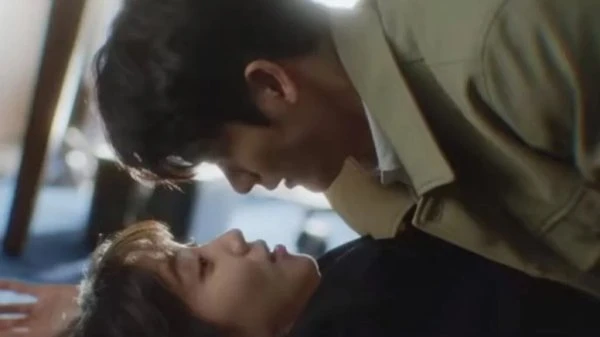
The same is true of a romantic subplot between Woo and a subordinate employee (Kang Tae-oh). Although a fully grown and responsible woman in her mid-twenties, Woo's innocence makes her seem like a child, so the whole thing comes across as a bit creepy. The parallel with one of Woo's cases, concerning a young man who claims to be in love with a girl with a developmental problem, does not come across as the writers probably intended. The same is true of several of Woo's cases. Whether it is intentional or not, she gives the impression of being too quick to sympathise. In at least one case her sympathies turn out to be misplaced.
Woo's relationship with her devoted father (Jeon Bae-soo) is far more wholesome. Once a law student himself, he gave up his own dreams to raise her alone and now earns his living running a small kimbap restaurant. Although kimbap looks like a futomaki roll in Japanese sushi, it is in fact a very basic dish of rice wrapped in seaweed with some other ingredients, usually not fish, thrown in for flavour. In Korea it is viewed as simple comfort food, but Woo, who craves familiarity, prefers it to everything else and would happily eat it all the time.
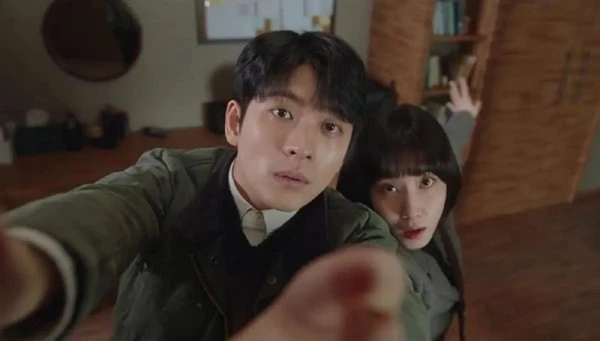
Her relationship with her best friend, Dong Geu-ra-mi (Joo Hyun-young), a free spirited rebel who acted as her bodyguard in High School, is surprisingly credible and agreeable, two very different outsiders bonded by being outsiders. Dong is apparently employed as a waitress in a bar run by "Mr Hairy" (Im Sung-Jae) which never seems to have any customers - having the outspoken Dong as a waitress probably does not help.
Baek Ji-won plays the CEO of the firm which employs Woo and Jin Kyung the CEO of a rival firm with big ambitions. Joo Jong-hyuk and Ha Yoon-Kyung play Woo's fellow First Year Associates in Jung Myung-Seok's litigation team: they are therefore both her colleagues and her competitors; the former aspires at first to be Machiavellian - he is known as "Tactician Kwon," which apparently has negative connotations in Korea - while the latter is aristocratic and more considerate. All these characters are given strong arcs of their own, with Jung Myung-Seok's emerging, perhaps surprisingly, as the strongest.
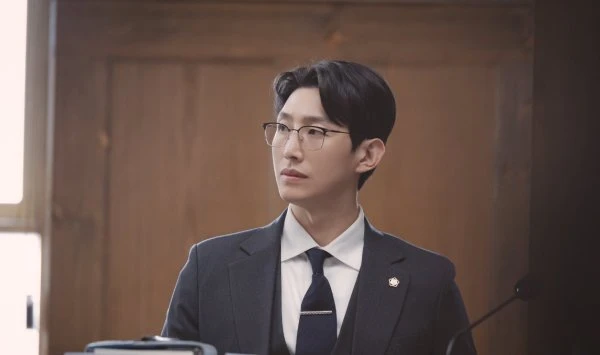
Much of the interest for the Western viewer lies in the opportunity to observe a culture very different from our own. Ironically the writers of the show often take a negative view of that culture. It seems that the entertainment media in Korea are dominated by the same side of the political spectrum that dominates them in the West. Yet it speaks for itself that there must be some strength in traditions that have enabled South Korea to accomplish so much economically, and now culturally, in just seventy years. Extraordinary Attorney Woo is itself a product of what it seems to view critically.
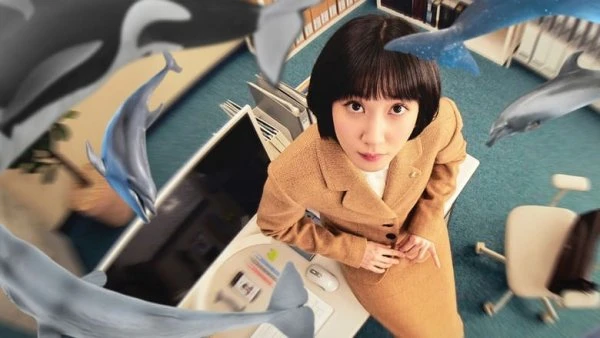
After an undistinguished start, the show grew in popularity to achieve some of the highest ratings in the history of Korean satellite and cable history. A second season has now been commissioned. Meanwhile the show is available in the West on Netflix, which has bought a great deal of content from Korea. So far, however, there is no sign of Extraordinary Attorney Woo becoming the next Squid Game. Perhaps its cultural unfamiliarity is too great. However, it is worth a look for that very reason, and because it is in its own right an amiable and entertaining show. It also has something useful to say about autism, subject to its own warning that it should not be taken as typical. If all that is not enough, the guest appearances by Woo's whales and dolphins are always welcome. One can understand why she loves them so much.
Published on December 6th, 2022. Written by John Winterson Richards for Television Heaven.


